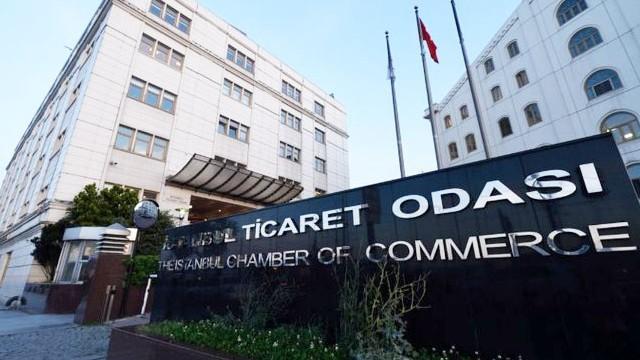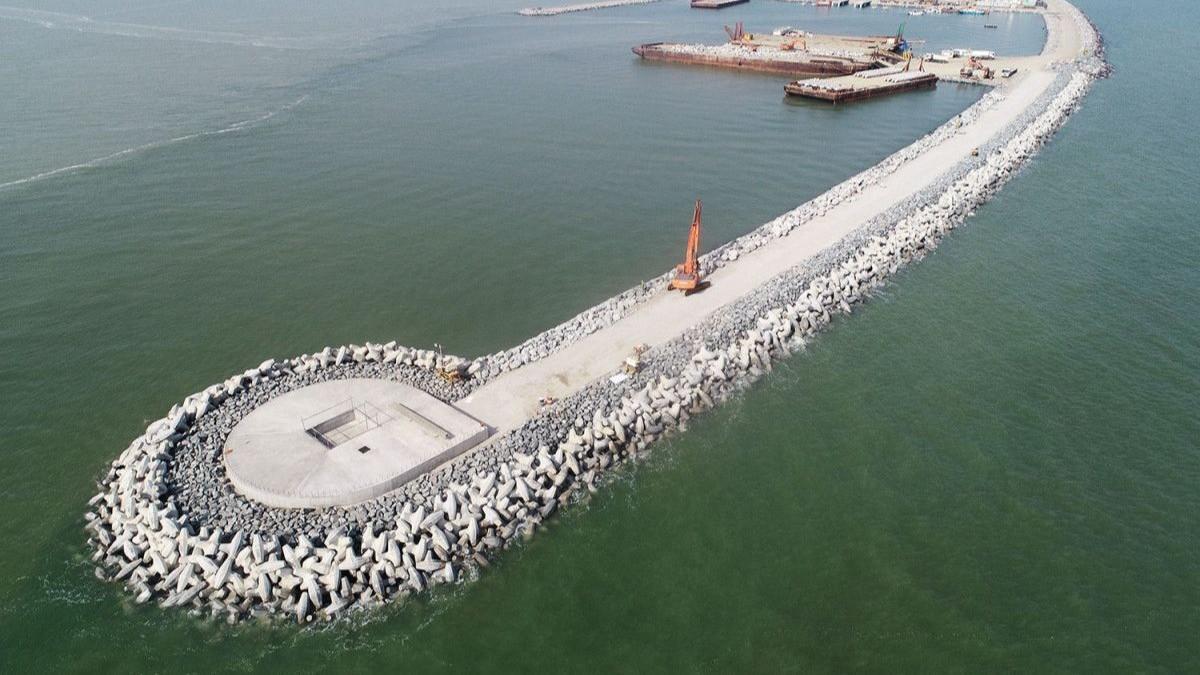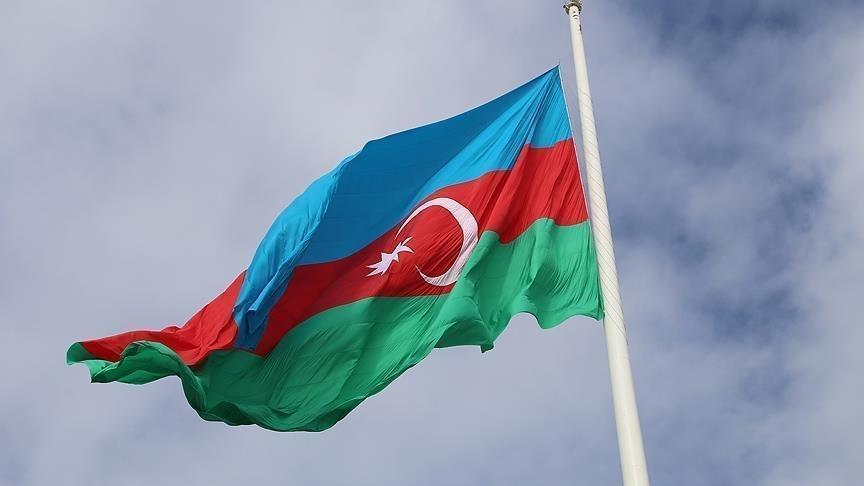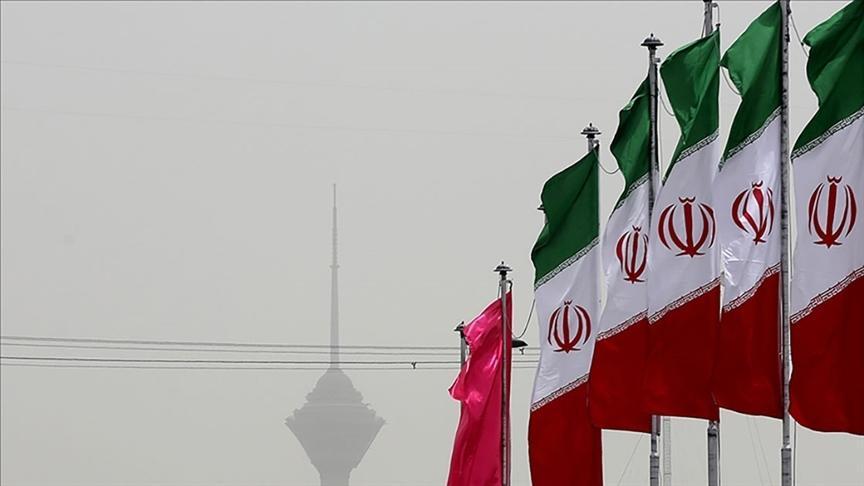Italy at impasse after vote, rattling markets
ROME - Agence France-Presse
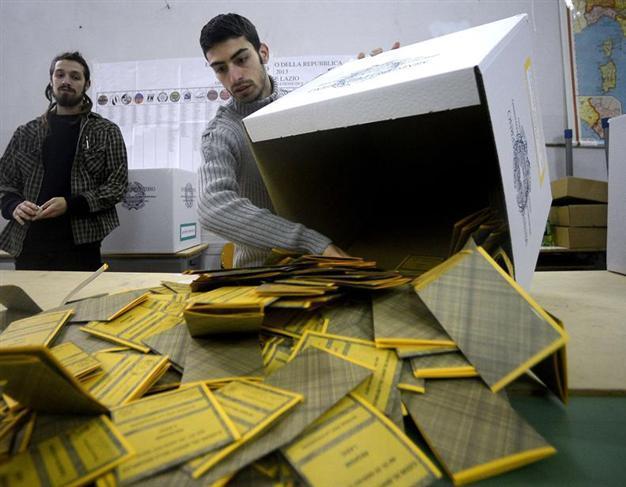
Workers open the ballots in a polling station in downtown Romein a polling station in Rome on February 25, 2013 at the end of the second day of the Italy's general elections. AFP PHOTO/ Filippo MONTEFORTE
Italy was at an impasse Tuesday after an election seen as crucial for the eurozone failed to produce a clear winner and provided a shock debut for a populist anti-austerity party, rattling world markets and setting off alarm bells across Europe.The Milan stock market plunged and Italy's borrowing rates jumped after centre-left Democratic Party leader Pier Luigi Bersani scraped a razor-thin victory in the lower house of parliament but the Senate remained up for grabs.
Stock markets in Europe, Asia and the United States also fell on fears of instability in the eurozone's third biggest economy.
A majority in both chambers of parliament is required to form a government, leaving Italy in a state of limbo with a hung parliament that is unprecedented in its post-war history.
"It is clear to everyone that this is a very delicate situation for the country," Bersani said late Monday.
European capitals, which fear the deadlock could plunge Italy back into the debt crisis storm, sounded alarm.
"It's a leap into the unknown, which bodes poorly both for Italy and the rest of Europe," said Spanish Foreign Minister Jose Manuel Garcia Margallo. Silvio Berlusconi's right-wing forces came a close second, winning 29.18 percent of the vote to 29.54 percent for Bersani in the lower house.
A third force -- the populist, anti-government Five Star Movement (M5S) of former comic Beppe Grillo -- won big, reaping a resounding protest vote from an electorate fed up with austerity policies and a grinding recession to score 25.5 percent in the lower house.
European powerhouse Germany, as well as France, also reacted nervously, with German Foreign Minister Guido Westerwelle calling for a new government to be formed "as quickly as possible".
"The politicians in Rome know that Italy still needs a policy of reform, a policy of (budgetary) consolidation," he said.
"The country which most needs stability will not have a government that lasts for more than a few months," said James Walston, a professor of international relations at the American University in Rome.
The big loser was outgoing prime minister Mario Monti, who was drafted to run a technocratic government in the debt-strapped country after Berlusconi was ousted at the height of the financial crisis in 2011.
In contrast to Grillo's shock success, Monti won just 10.56 percent in the lower house, the Chamber of Deputies. While he won praise in Europe, he was increasingly criticised at home for his austerity measures.
"The real Italy has expressed all its malaise and in this vote can be heard the voices and the stories of those who cannot find work, who cannot retire... those who think they have no future and flee abroad," wrote the daily La Stampa.
Unemployment rose to a record high of 11.2 percent in December, with joblessness among those aged 15-24 standing at 36.6 percent.
A victor's bonus will give the left a handy majority in the 630-seat lower house, the Chamber of Deputies.
But in the 315-seat Senate, neither left nor right has mustered a majority, with Berlusconi's People of Freedom winning 116 seats and Bersani's Democratic Party winning 113.
"Boom for Grillo, Italy Ungovernable", screamed the headline in the left-leaning La Repubblica daily. The elections spelled a "victory for a euro-sceptic Italy in the face of the policy of economic rigour," said an editorial in Italy's leading daily Corriere della Sera.
"This is fantastic! We will be an extraordinary force!" Grillo said Monday, warning mainstream politicians they would "only last a few more months." "We'll have 110 people in parliament and we'll be millions outside," said the campaigner, who has packed city squares across Italy with his rallies.
Some Democratic Party officials suggested fresh elections may have to be held within a few months after a reform of Italy's complex electoral laws. Others said some form of agreement could be found with Grillo's anti-austerity M5S.
Political analysts suggested a possible return to the grand coalition agreement between right and left seen under Monti over the past 18 months -- or even dissolving the Senate alone to hold fresh elections for only one chamber of parliament.
"Grillo will play a decisive role. He has to decide whether to strike a limited agreement with the left or go for fresh elections," said Roberto D'Alimonte, political science professor at Rome's LUISS University.
Berlusconi dismissed the idea of fresh polls, saying: "I don't think it would be useful in the situation." Monti called on any future government "not to dissipate the sacrifices made by Italians," adding: "A government must be guaranteed for the country." The down-to-earth Bersani, the 61-year-old son of a car mechanic, has told Italians he is the best man to help promote a growth agenda for Europe and "turn the page" after Berlusconi.
The former communist has said he will abide by the budget discipline enforced by Monti.
But Berlusconi waged a populist campaign, blaming Germany for Italy's economic woes and promising to refund an unpopular property tax to Italians -- out of his own pocket if needed.
The 76-year-old media tycoon is a defendant in two trials -- for tax fraud and for allegedly having sex with an underage prostitute.
He is also the only post-war prime minister to have served out a full five-year term. The Milan native has been prime minister three times in a turbulent 20 years in politics.



